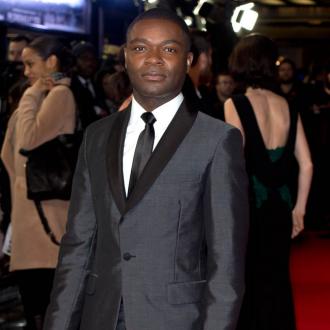David Oyelowo Says Black Actors Only Get Recognition For Being "Subservient"
By Nick Hill in Movies / TV / Theatre on 03 February 2015
The 38-year-old actor recently gave his opinion on why the Academy Awards chose not to nominate him for his portrayal of Martin Luther King in 'Selma.'
Many critics couldn't believe that the Academy Awards didn't nominate David Oyelowo for his portrayal of Martin Luther King in the critically acclaimed movie 'Selma,' and now the British actor isn't holding back when talking about being snubbed.

Oyelowo was very critical about Hollywood's history with black actors
The historical flick, which depicts Martin Luther King's campaign for equal voting rights with a march from Selma to Montgomery, Alabama in 1955, received two Oscar nominations for Best Picture and Best Original Song, but Oyelowo wasn't given a nod for Best Actor and he thinks this decision reflects how Hollywood treats black actors.
More: David Oyelowo Slams Benedict Cumberbatch Criticism as "Silly"
While speaking to a crowd at the Virtuoso Awards at the Santa Barbara International Film Festival on Sunday (Feb 1st), the 38-year-old actor was asked what it was like being "the subject of Oscar snub outrage."
"I felt this before the situation we're talking about and I feel it now. Generally speaking, we, as black people, have been celebrated more for when we are subservient, when we are not being leaders or kings or being at the center of our own narrative," he replied.
Oyelowo also used examples such as Denzel Washington not winning for 'Malcolm X' back in 1992 to point out that the movie industry has had a history of ignoring black actors in starring roles.
More: After Oscars Snub, Ava DuVernay and David Oyelowo Announce 'Katrina'
"So this bears out what I'm saying, which is we've just got to come to the point whereby there isn't a self-fulfilling prophecy - a notion of who black people are - that feeds into what we are celebrated as, not just in the Academy, but in life generally," he stated. "We have been slaves; we have been domestic servants; we have been criminals; we have been all of those things. But we have been leaders; we have been kings; we have been those who changed the world."
Oyelowo also revealed that 'Selma' made due to the financial success of '12 Years a Slave' and 'The Butler.' He said, "I know for a fact that Selma got greenlit after both of those films made almost $200 million each."
"Up until 12 Years a Slave and The Butler performed well both critically and at the box office, films like this were told through the eyes of white protagonists, because there is a fear of white guilt," he explained. "So you have a very nice white person who holds black people's hands through their own narrative. And then you have black people to be [like], 'We don't want to see that pain again,' so you don't really go into what that pain was in an authentic way. Both of those things are patronizing to the audience."
Contactmusic
Movies and Trailers
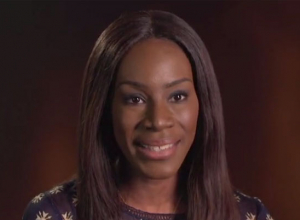
A United Kingdom Featurettes Trailer
'A United Kingdom' is the story of Sir Seretse Khama who, in 1948, caused a...
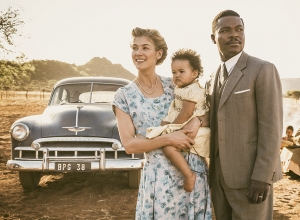
A United Kingdom Movie Review
Based on a powerful true story from the late 1940s, this drama is packed with...
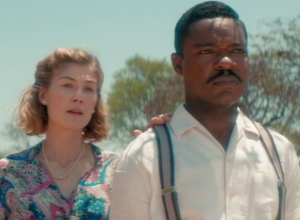
A United Kingdom Trailer
Once upon a time, a handsome, intelligent man fell in love with an equally clever...

Queen Of Katwe - Teaser Trailer
Disney's Queen of Katwe is set in the slum of Katwe in Kampala, Uganda where...
Advertisement
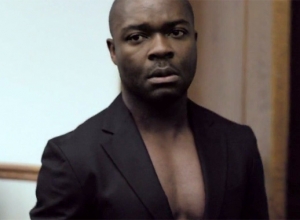
Captive Trailer
Ashley Smith is heavily addicted to drugs so much so that she has lost custody...

Selma Movie Review
One of the finest biopics in recent memory, this drama manages to present someone as...

A Most Violent Year Movie Review
With this confident drama, J.C. Chandor (Margin Call, All Is Lost) continues to evolve as...

Selma Trailer
“What happens when a man stands up and says ‘enough is enough’?” So goes the...

A Most Violent Year Trailer
In 1981, New York City saw its most violent year in the city's history. When...

Interstellar Trailer
Mankind is doomed. Following generations of neglect and a lack of care, the planet Earth...
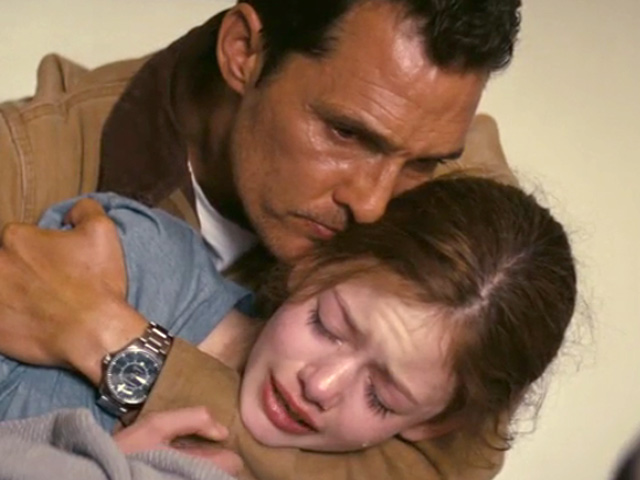
Interstellar Trailer
Cooper is a pilot and engineer with a huge ambition to save the world. With...
Advertisement






